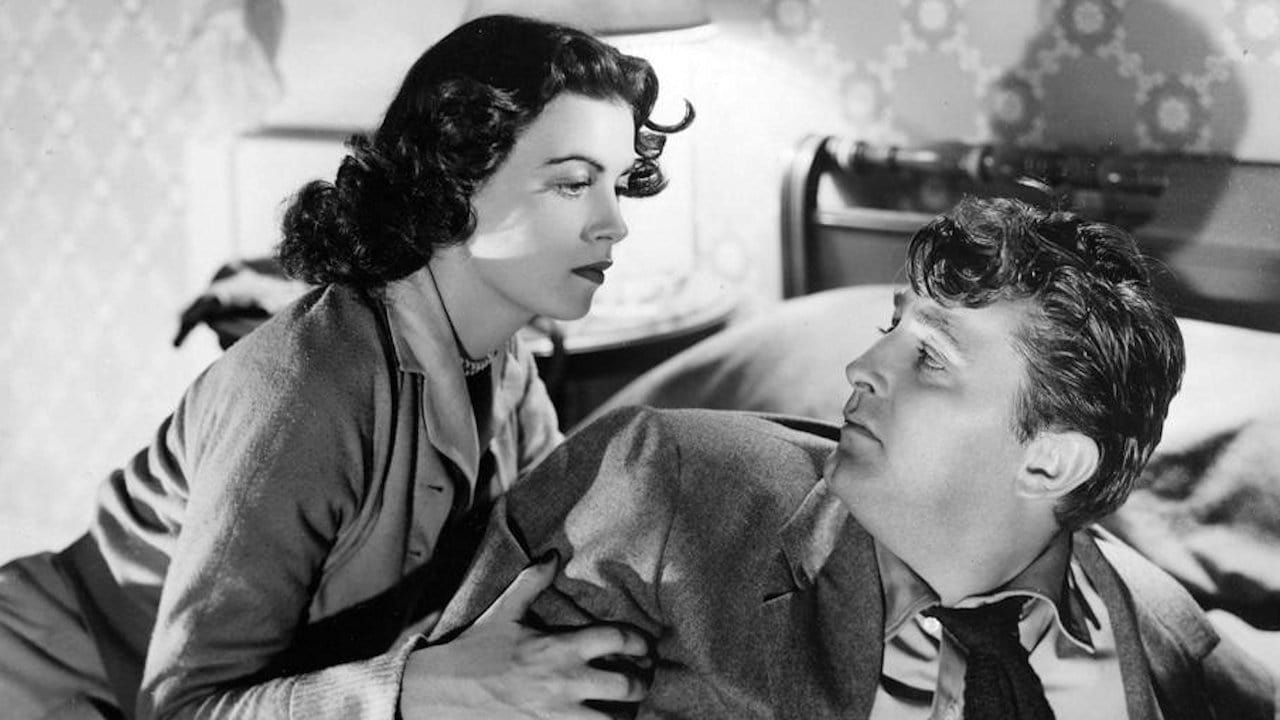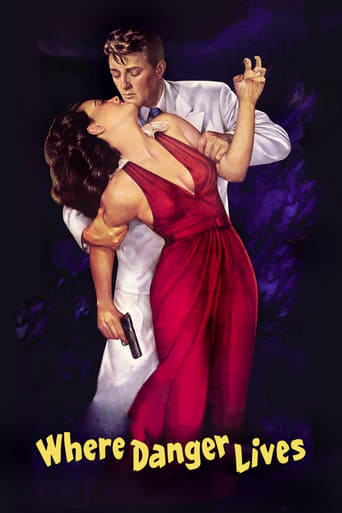Linbeymusol
Wonderful character development!
Greenes
Please don't spend money on this.
StyleSk8r
At first rather annoying in its heavy emphasis on reenactments, this movie ultimately proves fascinating, simply because the complicated, highly dramatic tale it tells still almost defies belief.
Tyreece Hulme
One of the best movies of the year! Incredible from the beginning to the end.
disinterested_spectator
In some movies, the protagonist will commit some minor offense that will result in his being punished way in excess of what he would seem to deserve.This movie begins in a hospital, which we typically think of as serving the public good. Jeff is a doctor at that hospital, and Julie, his fiancée, is a nurse. We know that their relationship is wholesome, because he regularly gives her a white rose. He is dedicated to his profession, and so much so that a nurse reprimands him for working too hard. To underscore what a good man Jeff is, his patients are children, with whom he has a terrific bedside manner. He tells a story to a girl in an iron lung to help her go to sleep, and then chats with a little boy, promising that they will have more baseball discussions in the future.But it is when he is talking to the boy that we discover Jeff's sin. When the boy mentions that he knows Jeff will be going away, the nurse says, in an apologetic tone, that she told him that Jeff will be going into private practice. Private practice? Oh no! That means he values money more than people.Now, it might be thought that I must be some kind of socialist to condemn a doctor for wanting to go into private practice. On the contrary, I am enough of a capitalist to want to see doctors make a lot of money, either in a hospital or in private practice. And good doctors go into private practice all the time. But the people who made this movie put in the remark about private practice for a reason. Remove that one brief scene with the boy, and the rest of the movie could have been exactly the same, without anyone thinking there was something missing. We would simply believe that Jeff was being punished for being unfaithful to Julie. Because the writers put that line in the movie, we can only conclude that it was supposed to tell us something about Jeff's character, that he was guilty of forgoing his public service for the sake of private greed.It's an old story. Once a man gives in to one sin, he soon gives in to another. Just as he is about to leave the hospital, he is delayed by an emergency attempted suicide. The woman is Margo, and when she wakes up, she sees Julie's rose and thinks it is for her, saying she likes red roses instead. When Margo grabs Jeff's hand to thank him for pulling her through, Julie senses something, raising her eyebrows, and she exchanges glances with Jeff.As it turns out, Julie's doubts and suspicions are justified. Jeff begins dating Margo, bringing her a red rose on a regular basis, red being an obvious symbol for lust, the new sin added to the previous one of avarice. And it turns out that her marriage is based on an exchange of one sin for the other, money in exchange for sex. Jeff only finds out about this later, because Margo has lied to him about her marriage, claiming her husband is her father. This lie leads to a confrontation between the two men, leading to blows, and ultimately to the husband's death. Jeff believes he accidentally killed him.Suffering from a concussion, Jeff cannot think straight, and he lets Margo talk him into fleeing with her. From that point on, everyone they come into contact with wants money from them. By the time they get to the border, they are broke. But then Margo reveals that for years she has been squirreling her husband's money away in a Mexican bank in her maiden name. Jeff further realizes that it was Margo who murdered her husband, smothering him with a pillow. She then tries to smother Jeff, and later shoots him. Then the police shoot her.Her dying confession exonerates Jeff, who awakes in a hospital. It is clear that he and Julie are going to get back together, white rose and all. While nothing is said one way or the other, we suspect that once he recovers and is no longer a patient in this hospital, he will return to the other hospital where he will continue working as a resident. He has presumably learned his lesson about wanting to go into private practice.
Spikeopath
Where Danger Lives is directed by John Farrow and written by Charles Bennett. It stars Robert Mitchum, Faith Domergue, Claude Rains and Maureen O'Sullivan. Music is by Roy Webb and cinematography by Nicholas Musuraca. Upon tending to attempted suicide victim Margo Lannington (Domergue), Dr. Jeff Cameron (Mitchum) falls in love with her and quickly finds his life spiralling out of control. Classic noir fable here, which begs the question on why is it not better known? More so when you consider it stars noir icon and legend Robert Mitchum? OK! Big Mitch never once convinces as a life saving doctor, but for a sad sap heavy eyed portrayal who you gonna call? Why Mitch of course. Thus the pic actually gets away with this odd bit of character casting, as it does the average performance from the otherwise lovely Domergue. Domergue was being pushed forward as Howard Hughes' latest siren of the screen, she would never attain great status, but she would grace many a "B" picture and become a cult fan favourite. Dr. Cameron has it all, a great job and a pretty nurse (O'Sullivan) who loves him very much, but one peer into the puppy dog eyes of Margo Lannington and he's in hook, line and sinker. Film essentially turns into a lovers on the lam story as the two lovers head for the border after leaving the scene of a crime. As the journey progresses and gets ever more perilous, Margo begins to show erratic behaviour, while Jeff is struggling badly with a concussion that grows evermore acute. They meet an assortment of odd or unsavoury characters, a low life car dealer, weasel pawn broker, shyster club owner, the latter of which is currently airing a rather bizarre cabaret show. They stop over in a noirville town where it's "Whisker Week", a backwater place where you are required to traditionally sport face fuzz on this particular week. Not only that but Margo and Jeff, minus whiskers and in confused states, end up being coerced into a bonkers marriage ceremony. It's all deliciously off kilter, the characterisations and situations marrying up deftly with Margo and Jeff's mental disintegration. Farrow adds his own directorial flourishes to the edgy mix, and Musuraca's photography is consistently gorgeous. All told it's as safe as noir houses for those of such noirish peccadilloes. 7.5/10
AaronCapenBanner
John Farrow directed this melodramatic thriller that stars Robert Mitchum as Jeff Cameron, a well-liked doctor who one night treats an attempted suicide victim, who turns out to be an attractive but mysterious woman named Margo(played by Faith Domergue) He foolishly begins an affair with her, despite her being married to a man named Lannington(played by Claude Rains). Margo then causes him to kill her husband, which forces them to flee to Mexico, where they stay at a seedy border hotel, waiting on their chance to be smuggled out, even as the police close in... Good cast but film is overripe and uninvolving, with Mitchum playing a man who should be much smarter than he is!
Ilpo Hirvonen
Film-noir wasn't all about amazing masterpieces by Orson Welles, John Huston and Alfred Hitchcock. The genre is full of b-class stories from which the most remembered ones are by Edgar G. Ulmer and Joseph H. Lewis. Robert Mithcum was a big star of these b-class noir films, but he wasn't a bad actor at all. He made on impressive performance in a very good film-noir, which wasn't even close to a b-class movie, Out of the Past (1947) by Jacques Tourneur. Mitchum is also remembered for Angel Face (1952) also a film-noir. Moral complexity, outlaws, dangerous women and desperate men were the trademarks of the genre, which can all be found is this commercial - mostly made for entertainment - film by John Farrow, who directed a few other film-noirs as well such as Calcutta (1947), The Big Clock (1948), Night Has A Thousand Eyes (1948) and His Kind of Woman (1951).The direction by Farrow is at times very conventional and he accidentally makes unintentional comedy in a few scenes. The story gets going when Jeff Cameron, a doctor (an unusual role for Mitchum) sees a suicide patient at his department. The following day he gets a suspicious note from the woman and is asked to meet her at an apartment. Eventually Jeff falls in love with the woman and gets framed for a murder. The rest of the film shows the running away of Jeff and her lover.Running away from the law was also a very common subject for film-noir. Anthony Mann's Desperate (1947) and Alfred Hitchcock's Spellbound (1945) probably being the most remembered ones. Running away always meant something more than just the concrete escape. In Hitchcock's Spellbound John is running away from the police, but also from his subconsciousness. In Where Danger Lives Jeff (Mitchum) is running away from the law and the difficulty of stable life.To my mind Where Danger Lives was a very well made film-noir. It is a very interesting film for all of those interested in film-noir and history of cinema, but it is also a treat for those who enjoy an entertaining thriller every now and then. Even that Mitchum's performance isn't the best one could find it has its own greatness - something similar that Vincent Price has. An entertaining common film-noir.

